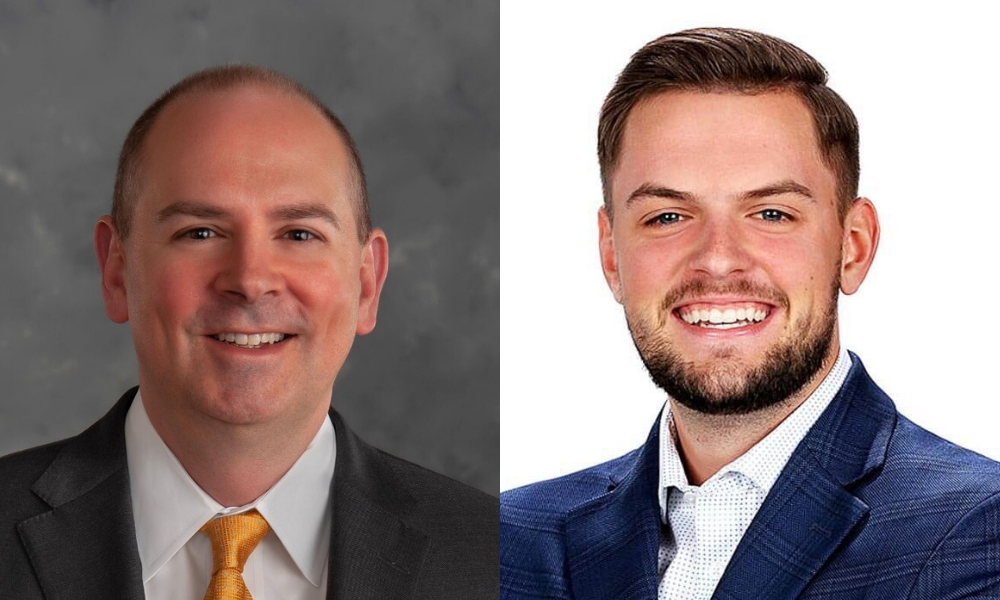

Home may be where the heart is, but more employees are finding it may not be where the bonuses and promotions are. And that’s got financial advisors speaking with clients more than ever about the financial tradeoffs of remote work.
According to a late 2024 KPMG survey, 86% of CEOs say they plan to reward in-office workers with higher pay and promotions. The report also showed many CEOs anticipate a full return to the office, with nearly 80% believing their hybrid employees will be back full-time by 2027.
As the return to the office trend takes hold, many wealth managers are increasingly helping clients explore its impact on their career choices, retirement savings and long-term financial strategies.
Frank Legan, financial advisor at SEIA, firmly believes that if working remotely slows down or halts opportunities for a promotion, then it would negatively impact future earnings, savings, and wealth accumulation. That said, for employees who are “more seasoned and have a long track record of success,” he said a return to the office may not matter as much. As a result, high performing employees may decide to push back to keep working from home.
“I’d be looking at recent promotions and feedback from top executives to gauge how big of a deal this is at your company,” Legan said.
Along similar lines, Collin Gimlin, financial advisor at Prime Capital Financial, said the long-term implications of remote work depend on the individual’s value to the company and the company's philosophy on employees working from home. He points out that from a cost standpoint, the remote employee should theoretically be saving more money without having daily costs such as fuel and food. As a result, they should be able to save more for their retirement and wealth accumulation.
Another factor - the cost of childcare can be greatly reduced with one parent working remotely. However, Gimlin notes that some companies have embraced the remote work lifestyle and taken the opportunity to consider it a "benefit" to the employee potentially at a cost to the individual's earnings.
“It all really comes down to a few things: what does the individual value more from a work environment standpoint and are they willing to take less pay? Secondly, whether one spouse works from home or not in order for wealth accumulation to happen you have to spend less than what you make which means hard sacrifices have to be made to a budget for a family,” Gimlin said.
There are multiple ways wealth managers can help dual-income families approach one partner stepping back. Oftentimes, it can come down to simply reviewing the family budget and prioritizing what needs to stay in the budget and what can be taken off.
Another tactic is for one partner to step back while the family lives off the income of the spouse who continues to work.
“It is very important to monitor this because some couples can only look at the short-term and if monthly living expenses can be met, then they assume one of the partner's can step back. But couples need to also factor in the long-term with retirement savings so both partners can eventually retire and fulfill their life ambitions without the stress of financial burdens,” Prime Capital’s Gimlin said.
In many ways this is a lifestyle choice for the entire family, according to SEIA’s Legan. In his opinion, it may be completely worth it for a family to have time together they otherwise wouldn’t if the breadwinner was in the office all the time.
“You can generally make more money, but we can’t get back time. The cost can be financial or quality of life. Which matters more to you?” Legan said.
If the individual wants more flexibility and a better work-life balance, then that is generally going to come with less pay or opportunity. That’s the simple tradeoff, said Gimlin, even if an employee refuses to see or accept it.
“Successful people did not get to where they were at without making sacrifices and so it depends on what the individual's life goals are,” Gimlin said.
“The other blind spot I often see is individuals rushing decisions to stepback from work and putting a large burden on the working spouse to make ends meet. If stepping back brings financial stress to the working spouse, then it will begin to create stress for the other spouse and that is what we have to point out as the advisors,” Gimlin said.
Legan summed it up nicely as well: “It’s about balancing the present with your future self. The clearer you are about your personal and professional priorities, the clearer you’ll be on what works best for you.”

Rajesh Markan earlier this year pleaded guilty to one count of criminal fraud related to his sale of fake investments to 10 clients totaling $2.9 million.

From building trust to steering through emotions and responding to client challenges, new advisors need human skills to shape the future of the advice industry.

"The outcome is correct, but it's disappointing that FINRA had ample opportunity to investigate the merits of clients' allegations in these claims, including the testimony in the three investor arbitrations with hearings," Jeff Erez, a plaintiff's attorney representing a large portion of the Stifel clients, said.

Chair also praised the passage of stablecoin legislation this week.

Maridea Wealth Management's deal in Chicago, Illinois is its first after securing a strategic investment in April.
Orion's Tom Wilson on delivering coordinated, high-touch service in a world where returns alone no longer set you apart.
Barely a decade old, registered index-linked annuities have quickly surged in popularity, thanks to their unique blend of protection and growth potential—an appealing option for investors looking to chart a steadier course through today's choppy market waters, says Myles Lambert, Brighthouse Financial.
